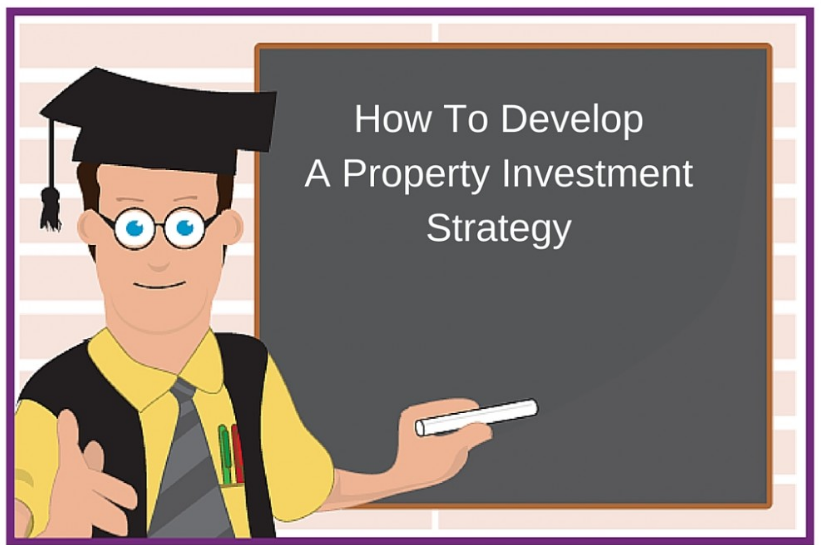
13:29 PM, 12th August 2016, About 9 years ago 3
Text Size

We often read about people living in London, Cambridge and other areas where property prices are at a premium and beyond the reach of most first time buyers. I fully understand their frustration because, in many cases, as fast as they can save a deposit, the amount of deposit required increases at a faster pace.
I have been giving some thought to what I might do if I were caught in this awful situation. Before I explain what I would do though, I will start by explaining what I wouldn’t do.
I wouldn’t be moaning and praying for a house price crash, that’s for sure. When these come along rental yields become more attractive and cash rich investors are the first to start buying. That’s what has happened every time there has been a property market crash before. Also, house price crashes don’t come along too often and nobody knows when the bottom is reached. Immediately following a house price crash the confidence of prospective first time buyers is at an all time low. When they talk to their friends who are caught in a negative equity trap they thank their lucky stars they never purchased a home.
Home ownership was important to me at one time. However, my thinking has changed, it’s getting on the property ladder that’s important.
Buying a property is a good idea but I’m not so certain that buying you own home is the best way to go about it. Homeownership can be a bit of a millstone around your neck if you want or need to move quickly, and it may not be possible to obtain consent to let from your mortgage provider either. Furthermore, your own home will be very personal to you. Somebody else might not like your taste and your idea of the perfect home may well become a liability to you at some point.
Then there is the affordability issue.
Many people I speak to, who live in expensive areas, manage to save 10 or 20 thousand pounds or so. Sometimes this isn’t enough to put down as a deposit on a property in their area and even if it is, it usually means getting a “Help-to-Buy” style mortgage to minimise the deposit requirements. Highly leveraged lending is considered by mortgage lenders to be higher risk lending, so naturally they charge more for it, thus increasing the weight of the liability and your financial risks if you opt for home-ownership on this basis.
So here’s what I would do
I would continue to rent my own home and look further afield where property prices are much more affordable. There are many areas of the UK where property can be purchased for less than £80,000. A £20,000 deposit would then only require a 75% mortgage.
Whilst you continue to enjoy the flexibility of renting your own home you will then be able to enjoy the capital appreciation and rental profits from a property that you can genuinely afford to buy. By the time you get to retirement age it will really pay dividends. Rents will have increased in line with market prices over the years and so will the capital value of your property. At worst your mortgage will balance will be the same as you started with (assuming you take an interest only mortgage). However, you may well have made enough money to pay off your mortagge and enjoy the rental income in your retirement. You may also decide to sell up and have a nice cash nest egg. The possibilities are endless. BEWARE THOUGH – buying profit making rental property becomes addictive. Once you have done this once, and got it right, you will probably buy another, and another. You could even become the next me – scary thought hey? !!!
So what would I buy?
I would buy the type of property that people like me, living in that different area, would always want to live in. I wouldn’t go for a glossy promo of a BTL development, I would look at areas where there is a balanced mix of owner occupiers and high tenant demand. I would check this by talking to several local agents.
Following plenty of research and number crunching I would eventually find the right property. More about how I got started and the lessons I learned via this link to an index page of a whole series of articles I wrote on this subject.
I would then get a Buy-to-Let mortgage on the property. Not easy if you’re not already a homeowner but it isn’t impossible either, especially if your parents are already credit worthy homeowners and qualify for a mortgage. Maybe they would be happy to support you by being joint applicants to the mortgage?
To avoid the consequences of the tax changes, preventing individual landlords from offsetting mortgage interest as an expense, I would form a new company to own the property. Don’t fall for the common misconception that mortgage lenders frown on lending to a brand new company. The truth is, many mortgage lenders prefer them! If the mortgage lender would ordinarily lend to you then it is highly likely they will lend to your newly formed limited company.
The next step is to find a really good letting agent. The three most important things to any landlord are:-
Get these three ingredients right and you’re generally onto a winner.
A good letting agent will reference the tenants and obtain an insurance policy to cover any risks of rent arrears and necessary costs of eviction for around £10 a month. It’s not rocket science. Also, a good agent will take care of all the laws and regulations for you so it is less important for you to know everything about the business of becoming a landlord. That said, it is wise to learn at least the basics and there are several one day courses you can take at a cost of around £150 for that. The National Landlords Association has the best known landlord accreditation course. A checklist of what a good letting agent offers can be found via this link
I hope you found this article useful, please feel free to post any comments or question below.
If you know somebody who is a frustrated, “would be,” first time buyer, why not draw their attention to this article by sharing it on social media and tagging them?
Thanks for reading and wishing you all the best
Mark Alexander – founder of Property118.com
OMG!
Within just hours of posting my article the video below popped up on my Facebook timeline. Talk about great minds thinking alike.
His closing message; “Rent where you live and own where you can rent to other people”
Previous Article
Councils call for Right to Buy changes over housing crisis fearsNext Article
Home Ownership Is Completely Overrated
Neil Patterson
Become a Member
If you login or become a member you can view this members profile, comments, posts and send them messages!
Sign Up13:57 PM, 12th August 2016, About 9 years ago
I have spoken to FTBs who have done the above in the past.
Buying a property for a student son or daughter is often popular as the first step on the ladder as well (obviously via bank of mum and dad).
Mark Alexander - Founder of Property118
Become a Member
If you login or become a member you can view this members profile, comments, posts and send them messages!
Sign Up17:12 PM, 12th August 2016, About 9 years ago
Update just added. Seems I'm not the only person who believes it is better to rent where you live and own where you can rent!
.
Dr Rosalind Beck
Become a Member
If you login or become a member you can view this members profile, comments, posts and send them messages!
Sign Up17:47 PM, 12th August 2016, About 9 years ago
I really don't get all this moaning in London that you can't afford to buy there. I worked there for several years in my early 20s and knew then that I could never afford to buy there. It didn't bother me at all. I later moved back to Wales and when I felt like it I bought my first house. It isn't difficult to buy a house in many parts of the country - near me there are loads of houses for not much more than £50,000. You have to compromise in life. If you choose to live in central London and pay £2,000 a month in rent for a little flat, whilst doing your dream job, then that is a decision. On the other hand, if you move out and do a job you don't like so much but get to own a house then that's also your choice.